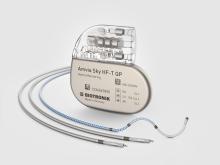Maintaining a Healthy Weight
It is always worth keeping an eye on your weight. If you are at a healthy weight, it is easier to exercise and be active and it helps take the strain off your heart. You can see if you are overweight by calculating your Body Mass Index (BMI). BMI is a rough guideline to evaluate a person's weight. If you have a BMI over 30, losing weight is an important way to improve your health and help your heart.




